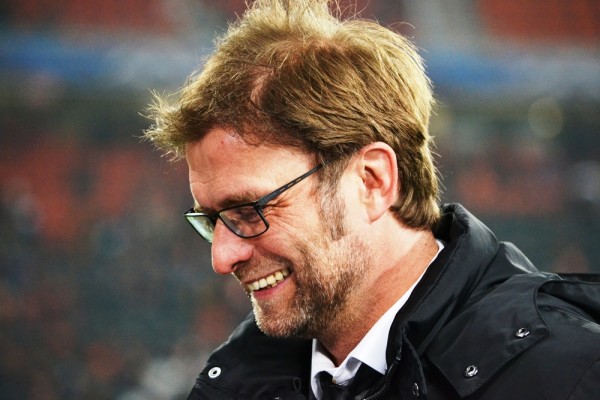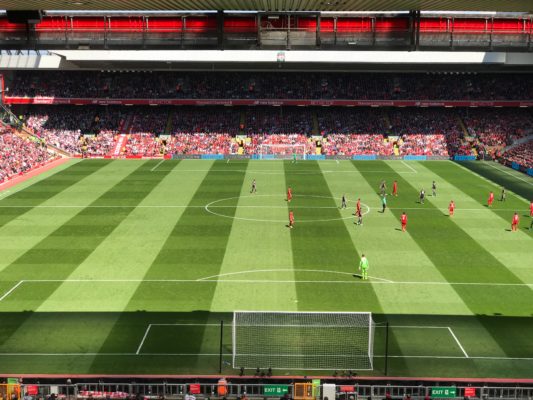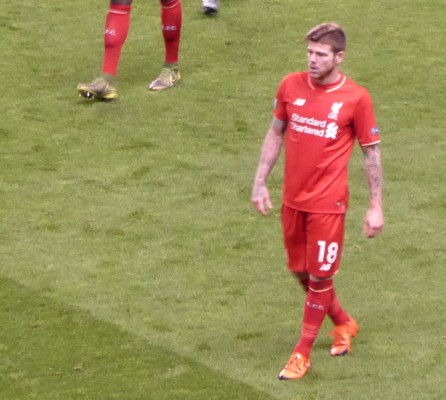It was an obvious reaction to our game against Southampton on Sunday. No sooner had the final whistle blown did people jump onto social media to express their feelings that they’d seen that game plenty of times before so far this season. A team turned up at Anfield with no ambition whatsoever to play football and Liverpool struggled to break them down. The manager didn’t get his starting line-up right and then left it too long to make changes, giving all four sides of the ground a terrible feeling of déjà vu.
Disappointing when teams have been playing like this against us for five months now and we’ve not figured out a way to break them down.
— Sam McGuire (@SamMcGuire90) May 7, 2017
Yet is the criticism all that fair? Has Klopp really learned nothing as the season’s gone on? Or is the fact that this campaign feels as though it’s going to finish with a whimper rather than a bang the reason we’re suddenly feeling empowered to criticise the German? Whatever the likes of the Bluenoses and the Mancs might want to say in order to criticise our supporters, we were in a title race up until the turn of the year. That our season has been reduced to a fumble for fourth rather than a fight for first means some supporters are allowing negativity to cloud their judgement. So I decided to ask the question: Is Klopp learning from his mistakes?
If Milner Had Scored The Pen…
Prior to kick-off, the vast majority of Liverpool supporters just wanted us to win. There wasn’t much of a call for us to play the exciting, free-flowing football of earlier in the season as most people knew that was no longer something we had in our arsenal. Instead, a scruffy 1-0 would have been snatched from the footballing gods had they offered it before a ball had been kicked. As fans we wanted the three points more than we wanted to be entertained, so was there much wrong with Klopp’s approach to the game? He opted to go with the same side that had eked out a 1-0 win over Watford away from home, operating similar tactics to those that had squeezed us past both Stoke City and West Brom.
Good morning @LFC
Not arsed how, just win today.
Regards,
All Liverpool fans.
— Enola Gay© (@GraemeWilding) May 7, 2017
Though the goals against Stoke, West Brom and Watford might have been attractive to watch, the overall performances weren’t. They were scruffy, dogged, tense affairs that won’t be on anyone’s end-of-season DVD. What they were, however, were winning performances. It’s hardly surprising, then, that the manager chose to adopt a similar approach against a Southampton side that had successfully nullified our threat in the previous three games we’d played against them. Having lost already to Saints at Anfield this season, as well as lost to Crystal Palace in our last home game and suffered defeat at the hands of Swansea in our backyard, Klopp will have taken the view that not losing was the most important thing.

Vlad1988 / shutterstock.com
Is this an outrageous approach for the former Dortmund and Mainz man to opt for? Was not losing more important than trying to win and maybe getting caught out as a consequence? In my opinion, yes. In the history of the Premier League, no team has failed to qualify for the top four with 73 points or more. The draw put us on 70, meaning that a win in our last two games should be enough. Had we attacked Southampton and ended up losing 1-0 then it would have put increased pressure onto what will already be a very tricky away match against West Ham. Now if we’re able to take three points on the last day of the season against Middlesbrough is should be enough to get us into the Champions League regardless of what happens to us in London.
What a Frustrating game. Milner’s missed pen was decisive. Kick on Reds! 2 games to go. 🔴👊🏽
— Farai Majaya (@faraimajaya) May 7, 2017
One thing that’s not been talked about much in the aftermath of the game is this: if James Milner’s penalty goes in then the Reds win 1-0 and achieve exactly what supporters saying ‘just win’ before the match wanted. It wouldn’t have been pretty, it wouldn’t have been fun to watch but it would have been enough to earn all three points. It may well also have completely re-shaped the conversation. Instead of talking about our poor play and inability to break down defences, we’d have been having chats about how Klopp’s taught his team to dog out performances. Whatever else you can say, small details change matches.
We’ve Become More Defensively Resolute
When we lost 2-1 to Burnley at the start of the season many fans complained that we’re too sloppy at the back. Our ability to score, seemingly at will, then papered over those complaints for a while, but they re-surfaced when we lost 4-3 to Bournemouth. 2-2 draws with West Ham and Sunderland, that 3-2 home loss to Swansea, more dropped points to the Cherries and a 2-1 defeat at the hands of Crystal Palace all served to add fuel to the argument that we’re not good enough defensively. You won’t get any argument from me. I’ve been banging the drum that a goalkeeper who concedes around fifty goals a season four years in a row shouldn’t be given fifth.
Throwing £100K a week at Lovren won’t solve Liverpool’s festering defensive issues. Champions League attack. Championship defence. #LFC pic.twitter.com/uzbND3HF3Y
— Peter Harvey (@peterjharvey) April 28, 2017
Yet the reality is that we’ve been much more resolute in defence in recent times. As much as I’m the first to be critical of him, a lot of that is down to Simon Mignolet’s improvement since his last mishap at Hull. He’s been claiming crosses, dominating his penalty area and refusing to be bullied by opposition attacks – the complete opposite of the player he’s been for most of his Liverpool career. ‘Nils’ in the scoreline against Southampton, Watford and West Brom are testament to an improvement that’s come about largely because the manager has done what supporters wanted and tightened up the defence. The problem is, at what cost?

Liverpool v Southampton
Rafa Benitez used to talk about teams being like a blanket, you might be able to pull it up over the head but you’ll leave the feet exposed. In the absence of Sadio Mané, Jordan Henderson, Adam Lallana and a fit and firing Daniel Sturridge, we’ve had to depend on slices of good fortune and moments of sheer class to get us the goals. The exchange for that is a side that is more defensively cautious and there’s an argument to make that that’s exactly what they need to be right now. Having conceded for seven games in a row, our ability to keep West Brom at bay despite them tossing the kitchen sink at us was a welcome change to proceedings.
Liverpool have kept a clean sheet in consecutive #PremierLeague away fixtures for the first time since December. pic.twitter.com/eRzzUECbiR
— Unibet (@unibet) May 1, 2017
None of the games we’ve kept clean sheets in have been fun to watch, but it’s at least a sign that Jürgen Klopp is realising the importance of staying solid at the back if you’re hoping not to lose. Had we displayed the mentality we showed against Southampton when we played Bournemouth or Crystal Palace at Anfield then we’d likely have won both games. As supporters we really can’t have it both ways; we can’t say on one hand that we really want the team to be more solid at back but on the other that we miss our open, attacking play. The two things are inextricably linked and Klopp has shown as the season’s gone on that he’s willing to sacrifice one for the sake of the other.
Late Subs Still An Issue
One of the criticisms that has been levelled at the manager lately is that his substitutions have come too late in the game. On the face of it that’s something that I find it difficult to disagree with. Looking back at Sunday, I’m amazed that Divock Origi made it past half-time, let alone lasted to close to the 70th minute mark. Yet the truth is that the manager is seeing his players week-in, week-out on the training pitch and has learned more about them than we will ever know. I wrote a match review at the weekend that made clear my opinion that the manager got the starting XI wrong, but I’ve subsequently discovered that Adam Lallana over-exerted himself against Watford, so what do I know?
Matches like yesterday make me feel why Klopp holds on to his subs so late. 15 mins into the 2nd half if its not working change it ! #LFC
— Daksh Hassija (@Daksh_LFC) May 8, 2017
It’s easy, as supporters, to bemoan the fact that the manager’s leaving it too late to make changes. Yet the manager will have been advised by his medical staff about which players are able to play and how long they’re able to play for. There’s also the fact that the German clearly doesn’t trust certain players. For whatever reason, Daniel Sturridge isn’t doing what the manager wants him to do and is not being called up as a consequence. James Milner had a dreadful game against Southampton, but his replacement spent at least part of the game sat on the subs bench messing about with a bottle of water. It’s little wonder that the manager doesn’t feel as though he’s got the right players to mix things up from the bench.

Moreno. Dimwit.
It’s perfectly fine to say that Klopp left things too late and should have made the changes much sooner, but when Adam Lallana came on he was actually quite poor. You have to assume that Klopp knew he didn’t have the legs to do much more than half an hour and left it until then deliberately. At some points this season Klopp has got his substitutions wrong, whilst at other times he’s absolutely nailed them. The game against Stoke showed exactly what can happen when you’ve a bench filled with talent and that you trust to turn to. Has the manager learned how to use it as the campaign has progressed, or has he simply had different options to turn to at different times? The answer, as with every question raised in this piece, is filled with nuance.



